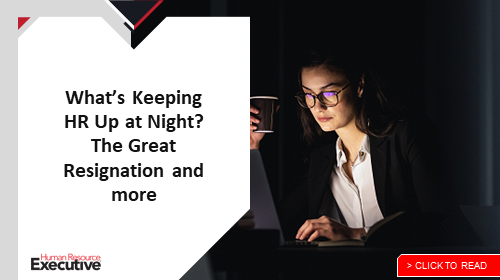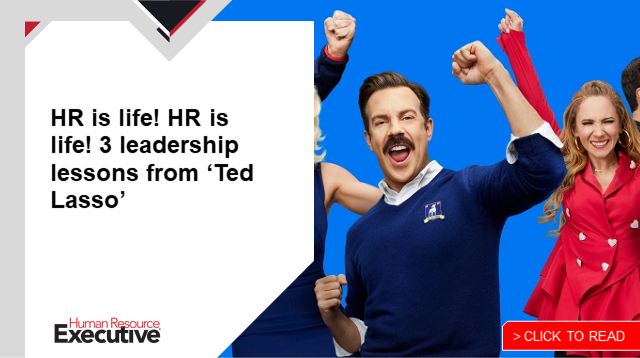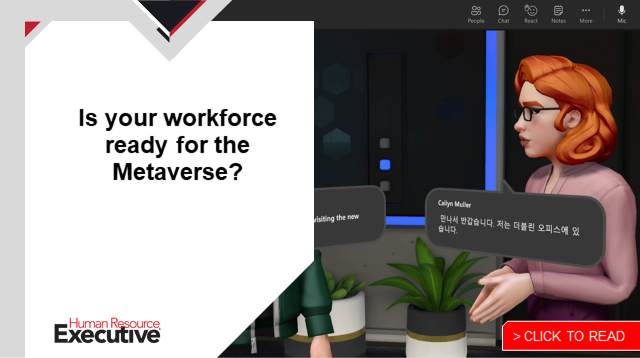After two years of dealing with COVID-19, HR leaders must listen to their employees, address mental health and prepare for the next crisis.
“Have a playbook,” said Dave Pilson, vice president for total rewards at Upwork and a panelist Tuesday for the keynote session, “The COVID-19 Benefits Revolution: What Have We Learned? What’s Next?” at the Health & Benefits Leadership Conference.
Pilson recalled that the talent marketplace solution provider recently had to deploy the crisis playbook it wrote during the COVID outbreak to address a new issue: the war in Ukraine. Upwork had 8% of its operations in Russia and Belarus and the company decided to stop operations after the invasion of Ukraine.
Related: Benefits technology is having a moment-and COVID is partly responsible
“We utilized the same playbook that we had developed during the COVID crisis to address the Ukraine war,” he recalled. “Our biggest lesson (from COVID) is to have your playbook down, have a crisis leadership team queued up and ready to go.”
He added, “We even have a process for how and where [the crisis team] gets together.”
 HR leaders and their teams also need to be nimble to respond to the next crisis, advised Kimberly Paris, regional HR strategic director for Penn State Behrend.
HR leaders and their teams also need to be nimble to respond to the next crisis, advised Kimberly Paris, regional HR strategic director for Penn State Behrend.
“It’s hard to move 40,000 people in a new direction by pointing your finger and say, “This way,”’ she said.
HR leaders also need to have thorough documentation and C-suite approval to create a plan in a coming crisis. “Being able to be in and out of those situations quickly and have a comfort level that you can still execute in this kind of world is going to be incredibly important,” Paris said.
Mental health and listening
Mental health will remain a major HR issue that has to be addressed, especially when convincing employees to obtain therapies and counseling.
“It’s about the availability of good, solid mental health help for your employees and removing the stigma associated with seeking it out,” said Paris. “I think there has to be an open door policy on what we have available to use and there’s no issue using it.”
Related: Weathering the storm: Ginger Zee talks mental health in the workplace
HR executives can lead on mental health by taking their own mental health seriously, said Pilson. He recalled his love of conducting one-on-one meetings during walks around the campus before the pandemic. Without those walks, he instead has dealt with the resulting stress during the pandemic by turning off his camera.
“I’m giving myself permission to take those walks and say, call me on my cell phone and take a walk in the neighborhood,” he said.
 Making his life and family a priority was a lesson that helped Timothy Flacke, executive director & co-founder of Commonwealth, respond to the pandemic. As the father of two athletic teenagers, returning back to some semblance of normal was critical.
Making his life and family a priority was a lesson that helped Timothy Flacke, executive director & co-founder of Commonwealth, respond to the pandemic. As the father of two athletic teenagers, returning back to some semblance of normal was critical.
“As much as you want to say to exercise and do that kind of stuff, what really helped for me was seeing my kids back in a normal environment and it felt like, okay, we’re good. That helped me,” he said.
The panelists are also re-evaluating how often they hold meetings over Zoom and other video platforms. “There are too many meetings that could have been a one-minute phone call,” said Paris.
 Pilson reported that some workers have reached their breaking point with the video tool.
Pilson reported that some workers have reached their breaking point with the video tool.
“Our employees said we’re on Zoom calls 24/7 and some felt overwhelmed,” he said, adding that Zoom has changed how he interacts with coworkers. “I used to love talking with candidates and walking around the building and getting to know them. That has changed.”
Listening has never been more important, concluded Paris. HR leaders must absorb what their employees say and realize that they have unique challenges.
“We all think we know what’s going on because we’re experiencing it, but honestly, we’re all experiencing it differently,” she said, “So as HR professionals, I think we just need to take a breath and listen.”
The post Top benefits lesson from COVID: Have a playbook for the next crisis appeared first on HR Executive.